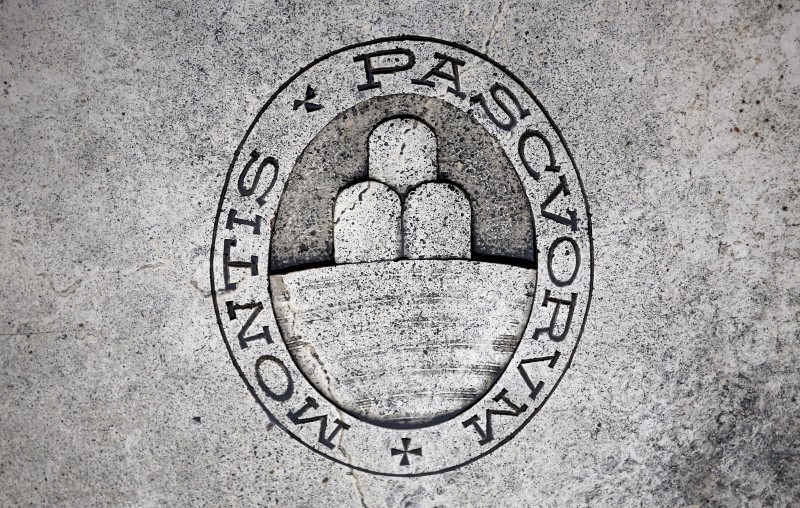By Francesco Guarascio
BRUSSELS (Reuters) - Italy's troubled banks do not represent an acute crisis and bailing out lenders will have an impact on private investors, the leader of euro zone finance ministers said on Monday, reacting to Rome's plans to back its banking sector with state aid.
Italy is in talks with the European Commission to allow public support for its weakest lenders, including Monte dei Paschi di Siena (MI:BMPS). State aid to banks is allowed by European Union rules only in exceptional circumstances, when "a serious disturbance" emerges in the economy.
But Eurogroup President Jeroen Dijsselbloem saw no "acute crisis" when speaking to reporters on the sidelines of a meeting of the Eurogroup of euro zone finance ministers, which he chairs.
"There are issues of non-performing loans in Italian banks, but that's not a new issue," he said, dismissing calls to address the Italian banking sector crisis as a fallout of the market turmoil caused by Britain's vote to quit the European Union on June 23.
Italy's lenders have been struggling for months to unload 360 billion euros ($400 billion) of non-performing loans - about one third of the euro zone total. After the Brexit vote, Italian bank shares were the most hit in the euro zone, compounding heavy losses since the beginning of the year.
EU's bank rescue rules in force since January make the use of public money to bailout banks also conditional on losses for banks' creditors, so-called bail in - although some wiggle-room is allowed.
Rome is trying to avoid hitting small savers, which caused mass protests and the suicide of a saver when the Italian government rescued four small lenders in November wiping out private investors' savings.
Dijsselbloem said that state aid can be used in certain circumstances, but this would require that private investors are hit "to some extent".
"It depends on where the bank is, how it comes out from stress tests, what the capital requirements are that need to be met," he added.
"The bail-in is a very sound economic principle which says that those investors that put in their money and take out the profits in a good year, carry the the losses in a bad year," Dijsselbloem insisted.
Italy did not recapitalise its banks during the financial crisis, and is now trying to use the leeway allowed by the new stricter rules to back its weakest lenders.
"The Italian government is working to prepare precautionary instruments that will be used only if necessary," Italian Finance Minister Pier Carlo Padoan said.
Asked about a new European multi-billion financial safety net for the banking sector suggested by a Deutsche Bank (DE:DBKGn) official, Dijsselbloem said that he would oppose banks' new requests for public support.
"There have always been and there will always be bankers that say that they need more public money to recapitalise the banks. I would resist very strongly," he said.

"Problems in the banks need to be sorted out in the banks by the banks," he added.